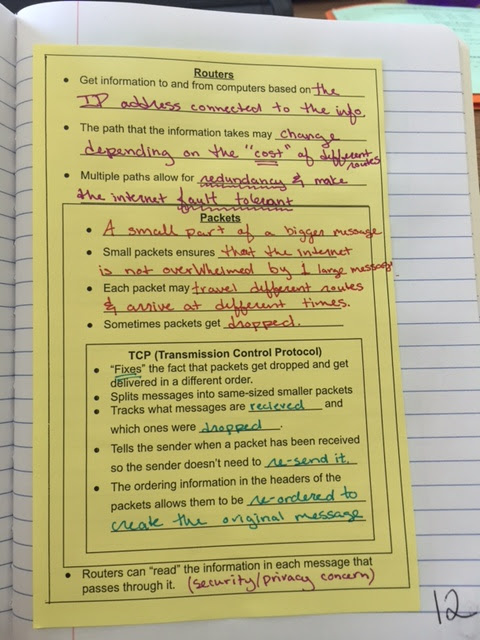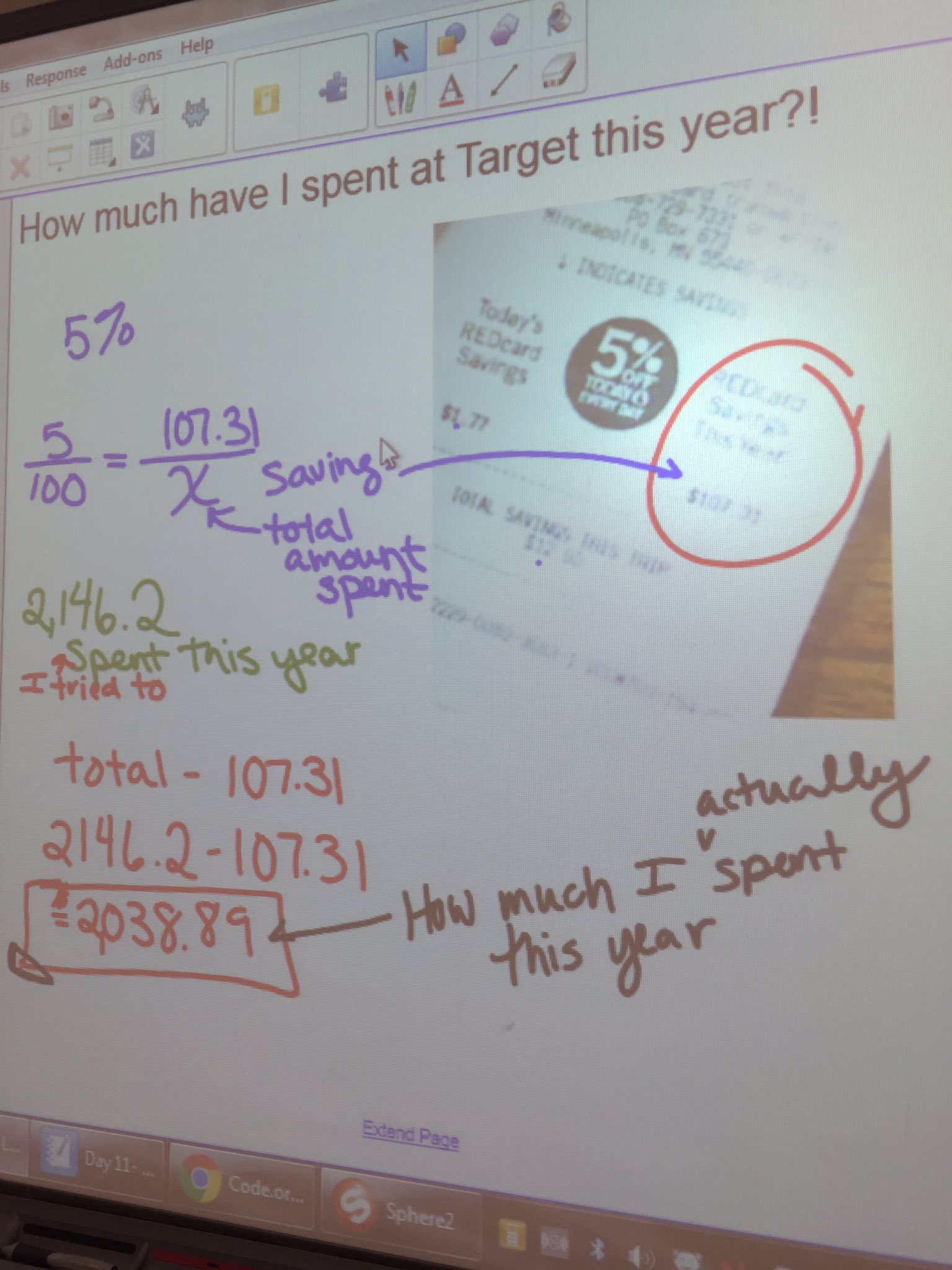Neither of my classes have textbooks this year so we are making our own. For my Advanced Algebra class, I have been relying a ton on the one and only Sarah Hagen.
For my AP CSP class, I had a little more work that I needed to do. Our first unit is on the Internet which has a lot of vocabulary that is new to students. This is what our first few pages look like...
I put in a mini-syllabus where we wrote in the norms we developed as a class together.
Obviously a contents page - borrowed from Sarah Hagen. I also put in these "Big Idea Connection" pages for students to write a reflection each day. I haven't graded those yet, but they were inspired by some really cool work by Sophie State's AP Bio class. I am excited to see what those look like in the next week. We will add 2-3 more pages to this unit in addition to what is shown here.

The famed Flippy-Do and a note about the binary number system. Originally I was going to do 3 pages on number systems but my students really seemed to understand it so I thought that felt like over-kill.
A little foldable about the physical internet. It is essentially a foldable with pros/cons inside.
Sometimes notes are boring... that's ok. This for IP addresses, nothing else made sense.
This one I was trying to do an "egg" like drawing but boxes were easier. A student said he could help me out with the egg though so we will see what changes. Ideally I would have had students use colored pencils to emphasize the different layers around TCP.
We will be doing HTTP tomorrow... but so far this is what we've got on this page. Pretty straight forward.
I am loving the notebooks - it gives us more freedom to focus on creativity and discovery in class and then take a day to synthesize everything. I also know EVERY student is getting this information in the end. Ideally this will become a key resources for students as they prepare for the AP test in May.
Informal reviews from students is mixed. Some feel like using glue sticks is below them, others have said they LOVE using glue sticks. I am hoping to more formally survey students after our first assessment so get their thoughts.
The internet unit is the most "information" heavy of all the topics, so I don't really know how I will be continuing to implement these in some of the more "doing" heavy topics like programming. For those units it might be more about vocabulary that pops up or a place for them to sketch their concepts and show that they are brainstorming ideas for projects.
I am also doing these in my Advanced Algebra class which is a totally different story in SO many ways. I will certainly be updating this blog with developments on that class as well.


















